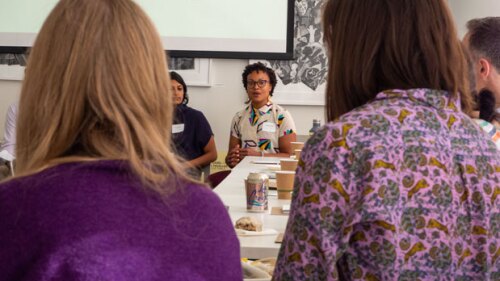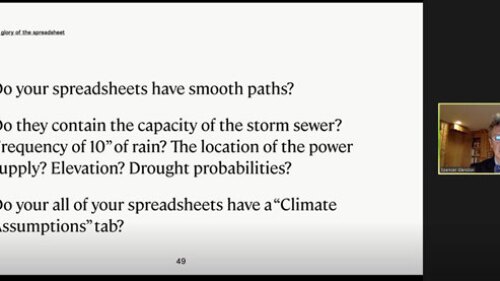Industry Voices
The Initiative for Energy Justice aims to: (1) contribute to a bottom-up movement of energy justice, originating in frontline communities, by arming movement and base-building organizations in the environmental, racial, and economic justice spaces with well-supported policy research and workable transactional models for operationalizing a just transition to renewable energy; and (2) provide city and state policymakers with concrete energy policy frameworks and best practice tools that foreground equity in the transition to renewable energy, drawing on the best available data collected from frontline advocates, existing energy policies, and frameworks designed by our team.
Early engagement with the community and inclusion of culturally significant art can create developments that benefit the existing community and lead to greater return on investment.
ULI MEMBER–ONLY CONTENT: As other segments of the real estate business adjust to challenges presented by the COVID-19 pandemic and economic recession, the industrial sector is looking to capitalize on greater demand for its facilities resulting from the explosion of e-commerce, panelists said at a Trends and Outlooks session during the 2020 ULI Virtual Fall Meeting.
ULI MEMBER–ONLY CONTENT: The pandemic has triggered a bigger decline in hotel and resort revenues (measured by revenue per available room) than the previous five economic crises combined, said panelists speaking on the hotel and resort sector outlook during the 2020 ULI Virtual Fall Meeting.
Because their decisions are lasting, real estate professionals must lead the way to cutting carbon emissions by 50 percent in this decade and by 100 percent by 2050, Spencer Glendon, senior fellow at the Woodwell Climate Research Center, told participants during the 2020 ULI Virtual Fall Meeting. He exhorted real estate leaders to pressure others for change, even to beg for regulation, in order to avoid potentially chaotic migrations as people eventually abandon areas rendered undesirable or even uninhabitable by rising temperatures and drought. “You can’t do this alone. You must demand better regulation,” he said.
A recent ULI Los Angeles virtual event titled “Housing Now: Shelter, Zoning, and Beyond,” brought together land use experts from the private and public sectors to discuss the housing affordability issue in Southern California, which parallels that in many large cities in the United States.
Four internationally renowned real estate industry leaders have joined ULI’s Global Board of Directors, and 38 additional industry luminaries have been added to the roster of the Institute’s Global Governing Trustees. Both the Global Board members and Global Governing Trustees will serve on a voluntary basis beginning on July 1.
A new update from ULI to the Reshaping Retailreport, which was published earlier this year prior to the coronavirus pandemic taking hold across Europe, forecasts that the impact of COVID-19 will accelerate the restructuring of the retail property sector, particularly in the United Kingdom. The need for stable cash flows has been identified as the main overall trigger point needed to spur the investment market.
In a follow-up to Promoting Housing Affordability, a report released earlier this year, ULI Europe held a webinar to look further into the report’s recommendations and how the COVID-19 crisis will affect the delivery of affordable and intermediate housing.
Innovations in medicine and trends in health care delivery are affecting the design and development of health-related facilities, services, and amenities in Arizona, panelists said during the “The Future of Healthcare and Biotechnology” session at the 2020 ULI Arizona Trends Day.



